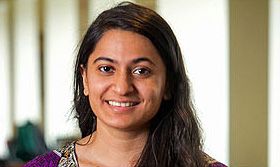Externships and Fellowships
The Duke Law externship program provides an unparalleled opportunity for students to spend a semester in the United States or abroad in placements at highly competitive human rights institutions. The externship program enables students to receive academic credit for gaining legal experience, beyond that available in the classroom setting, by working under the supervision of a licensed attorney in a governmental or non-profit setting. Externships can be local (e.g., the ACLU Capital Punishment Project), through the Duke in D.C. Program (e.g., the World Bank, Department of State, Inter-American Foundation, Court of International Trade, or Commission on Security and Cooperation in Europe), or international. In recent years, students have participated in high-level human rights placements at institutions such as the Office of the United Nations High Commissioner for Human Rights in Geneva, Switzerland, and The Extraordinary Chambers in the Courts of Cambodia (ECCC) in Phnom Penh, Cambodia, and the Human Trafficking Prosecution Unit of the United States Department of Justice in Washington, D.C.
Fellowships
Faculty and staff, including in the Office of Public Interest and Pro Bono and Office of International Studies, closely advise and support students to undertake experiential learning opportunities in the human rights field that not only contribute to their professional development, but also stress the value of service.
Duke Law supports law students through:
- International Law and Human Rights Post-Graduate Fellowship that provides funding and placement assistance to enable a Duke Law graduate to work full-time for one year on international and human rights legal work. The fellowship is intended to support students with a demonstrated interest and commitment to pursuing a career in public international law and human rights. The fellowship is not intended for academic research and should involve active engagement in the legal work of intergovernmental organizations, international courts and tribunals or non-governmental organizations that focus on one or more aspects of public international law and human rights. Previous fellows and placements include:
- Colombe Cahen-Salvador, Fellow 2017-2018 at U.N. Office of the High Commissioner for Human Rights and Norwegian Refugee Council
- Rym Khadhraoui, Fellow 2018-2019 at Amnesty International
- Meaghan Newkirk, Fellow 2019-2020 at Amnesty International and Robert F. Kennedy Human Rights
- Rina Kika, Fellow 2020-2021 at Amnesty International
- Ely Cossio, Fellow 2021-2022 at U.N. Office of the High Commissioner for Human Rights, Rule of Law, Equality and Non-Discrimination branch and Reprieve
- Clare Holtzman, Fellow 2022-2023 at U.N. Office of the High Commissioner for Human Rights and Amnesty International
- Diana Kenealy, Fellow 2023-2024 at U.N. Office of the High Commissioner for Human Rights and Extraordinary Chambers in the Courts of Cambodia
- Summer Public Interest Funding for applicants who have secured a summer position with a non-governmental, inter-governmental, or government organization, in the United States or abroad.
- The Duke Law Pro Bono Project, that connects students with attorneys working in non-profit and governmental organizations, as well as private pro bono practice to explore and contribute to public service, is also an important part of the human rights experience at Duke Law.
- Support for post-graduate fellowships that are entry-level, time-limited positions that provide otherwise unavailable opportunities to do entry-level work at prominent national, regional, and international organizations.
- The Salzburg Cutler Fellows Program brings together students from 14 of the nation’s top law schools with leading academics, judges, and practitioners in the fields of private and public international law.
